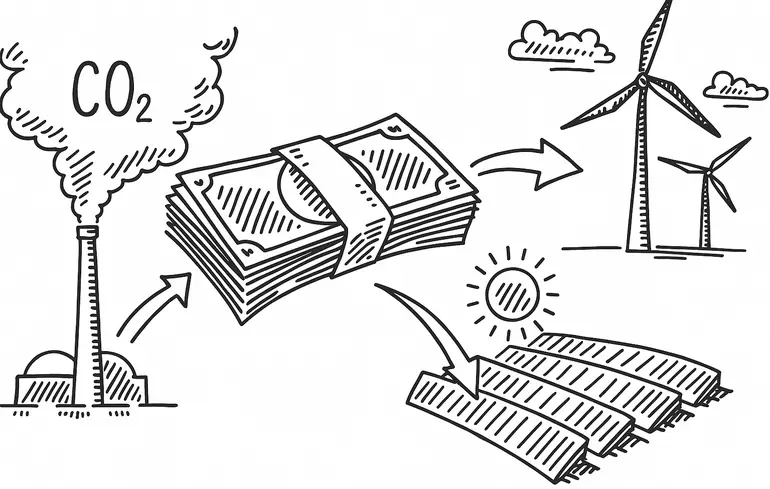Ukraine’s Climate Future and Business Opportunities: The Potential of Emissions Trading Systems

Ukraine is actively preparing to launch a new system of greenhouse gas quotas trading (ESG), which holds the potential to transform the country’s environmental policy into a formidable tool for sustainable development and economic modernization.
This innovative model, already well-established within the European Union and successfully implemented by various nations worldwide, centers around the principle ‘polluter pays,’ meaning that companies emitting larger quantities of greenhouse gases will bear higher costs for their emissions.
This incentivizes businesses to adopt greener technologies and reduce their environmental impact.
In Asia, notably in China, online emissions trading has already commenced, further emphasizing the global significance of these mechanisms.
Market-based systems set the price of carbon, compelling companies to reconsider their production processes and investment strategies toward lower emissions and energy efficiency.
The EU’s emissions trading system has been operational since 2005 and demonstrates high efficacy — reducing emissions, generating revenue from allowances, and fostering innovation.
In Ukraine, adopting ESG is a crucial step toward EU integration and climate commitments.
Amid wartime economic challenges, the ability to garner additional financial resources through quota sales presents an opportunity for rebuilding and upgrading industrial capacities.
It’s essential to establish a transparent and well-regulated system that incentivizes emission reductions and enhances energy independence.
Opening the emissions trading market will enable Ukraine to fulfill international obligations and advance towards a sustainable development paradigm, building mechanisms that support a modern environmental agenda and economic growth.

